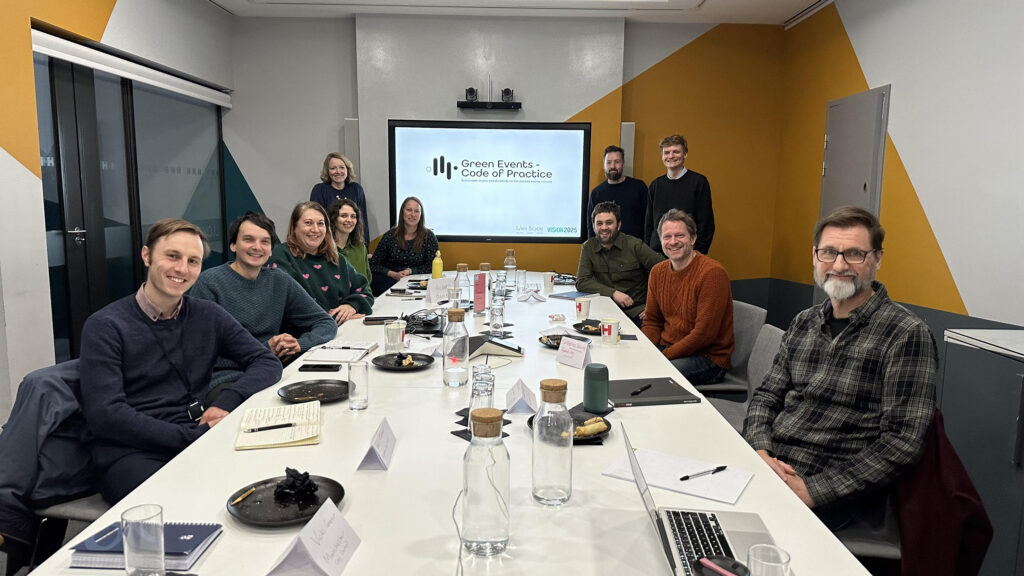- Posted on January 18th, 2024
Green Events Code of Practice Pilot Launched

Vision:2025 and Julie’s Bicycle have launched a pilot in collaboration with ten local authorities. Over 12 months, authorities including Manchester, Bristol and Reading will test how the Green Events Code of Practice (GECOP) can be used to embed sustainability within local authority processes.
“This project will future proof local authorities and the outdoor events sector. It has the potential to create a blueprint for legislation around environmental sustainability that works for the events, local authorities and the environment.” – Richard Phillips, Julie’s Bicycle Climate Change Specialist & GECOP Pilot Project Manager.

About the Green Events Code of Practice (GECOP)
GECOP developed as a collaboration between the outdoor events industry, local authorities and other stakeholders. It aims to create a clear, consistent understanding and approach to sustainable best practice for the sector.
The Code focuses on seven key areas where positive environmental change can be achieved: governance, energy, travel & transport, food & drink, waste, water, and influence.
Its overall aim is to commit to a minimum of 50% reduction of Greenhouse Gas (GHG) emissions by 2030, including:
- 50% reduction in fossil fuel consumption at live events by 2025
- reduction of at least 30% in meat & dairy consumption onsite by 2030
- eliminate single use plastic by 2025
About the pilot with local authorities
Local authorities are committed to the government net zero targets, with many declaring a Climate Emergency. They are beginning to develop policy and expectations relating to live events. However, there is a lack of national consistency or guidance about how this can be best achieved.
GECOP aims to achieve consistency with a set of clear, open and accessible best practices. This is now being tested using a new adaptive framework and tool, the Donut Advisory Tool for Events (D.A.T.E). Local authorities will use the DATE tool to collect and understand environmental data from events. It will help them to assess practices and performance in response to the seven core themes, and encourage environmental action.

Participating local authorities gathered for a kick-off meeting in Birmingham. The session explored the various ‘use cases’ for the environmental requirements set out in GECOP, including event licences, site permissions, policies and targets, among others. The group considered the practicalities of how the pilot will run and how success of embedding GECOP into existing processes will ultimately be evaluated.
“We are proud to be part of this pilot project to further our ongoing efforts to push for sustainable events in Manchester and beyond. The Green Event Code of Practice has been designed with event organisers in mind, as its consistency of approach and free-to-use tools will support them in delivering successful and truly sustainable events that benefit our city.” – Councillor John Hacking, Manchester City Council.
The outcome will be a free resource to upskill event organisers and local authority teams of all sizes and experience, across the UK, to enable them to measure and achieve their environmental targets.
Green Events Code of Practice
Supporters
The project is co-funded by Arts Council England and participating local authorities.
In addition to the core project funding from the participating local authorities and Arts Council England, ongoing funding by EarthPercent and Event Industry Forum (EIF) has supported development of the code. Festival Republic, the Association of Independent Festivals (AIF) and Superstruct have also supported through pioneer funds for industry consultations.
